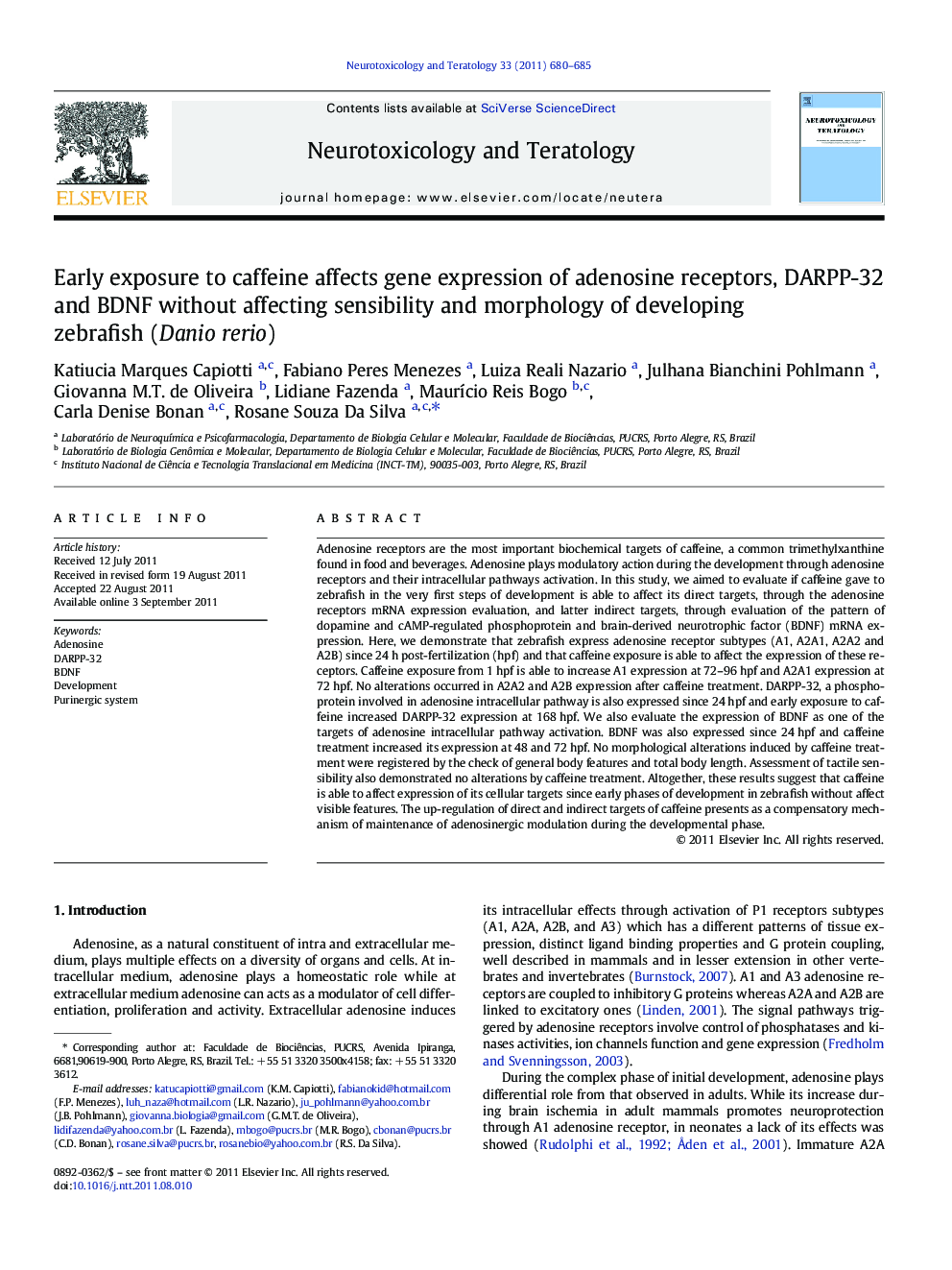| کد مقاله | کد نشریه | سال انتشار | مقاله انگلیسی | نسخه تمام متن |
|---|---|---|---|---|
| 2591605 | 1131818 | 2011 | 6 صفحه PDF | دانلود رایگان |

Adenosine receptors are the most important biochemical targets of caffeine, a common trimethylxanthine found in food and beverages. Adenosine plays modulatory action during the development through adenosine receptors and their intracellular pathways activation. In this study, we aimed to evaluate if caffeine gave to zebrafish in the very first steps of development is able to affect its direct targets, through the adenosine receptors mRNA expression evaluation, and latter indirect targets, through evaluation of the pattern of dopamine and cAMP-regulated phosphoprotein and brain-derived neurotrophic factor (BDNF) mRNA expression. Here, we demonstrate that zebrafish express adenosine receptor subtypes (A1, A2A1, A2A2 and A2B) since 24 h post-fertilization (hpf) and that caffeine exposure is able to affect the expression of these receptors. Caffeine exposure from 1 hpf is able to increase A1 expression at 72–96 hpf and A2A1 expression at 72 hpf. No alterations occurred in A2A2 and A2B expression after caffeine treatment. DARPP-32, a phosphoprotein involved in adenosine intracellular pathway is also expressed since 24 hpf and early exposure to caffeine increased DARPP-32 expression at 168 hpf. We also evaluate the expression of BDNF as one of the targets of adenosine intracellular pathway activation. BDNF was also expressed since 24 hpf and caffeine treatment increased its expression at 48 and 72 hpf. No morphological alterations induced by caffeine treatment were registered by the check of general body features and total body length. Assessment of tactile sensibility also demonstrated no alterations by caffeine treatment. Altogether, these results suggest that caffeine is able to affect expression of its cellular targets since early phases of development in zebrafish without affect visible features. The up-regulation of direct and indirect targets of caffeine presents as a compensatory mechanism of maintenance of adenosinergic modulation during the developmental phase.
► We treated zebrafish embryos with caffeine during their first week of development.
► A pattern of up-regulation of adenosine receptors, DARPP-32 and BDNF was registered.
► No visible features of zebrafish body and tactile sensitivity were altered.
► Recovery of purinergic signaling is reached after caffeine block.
Journal: Neurotoxicology and Teratology - Volume 33, Issue 6, November–December 2011, Pages 680–685